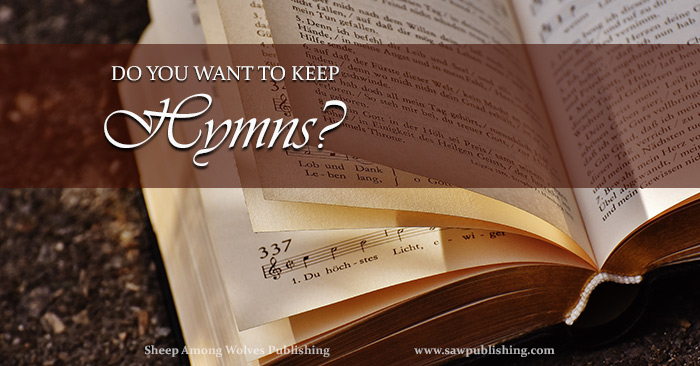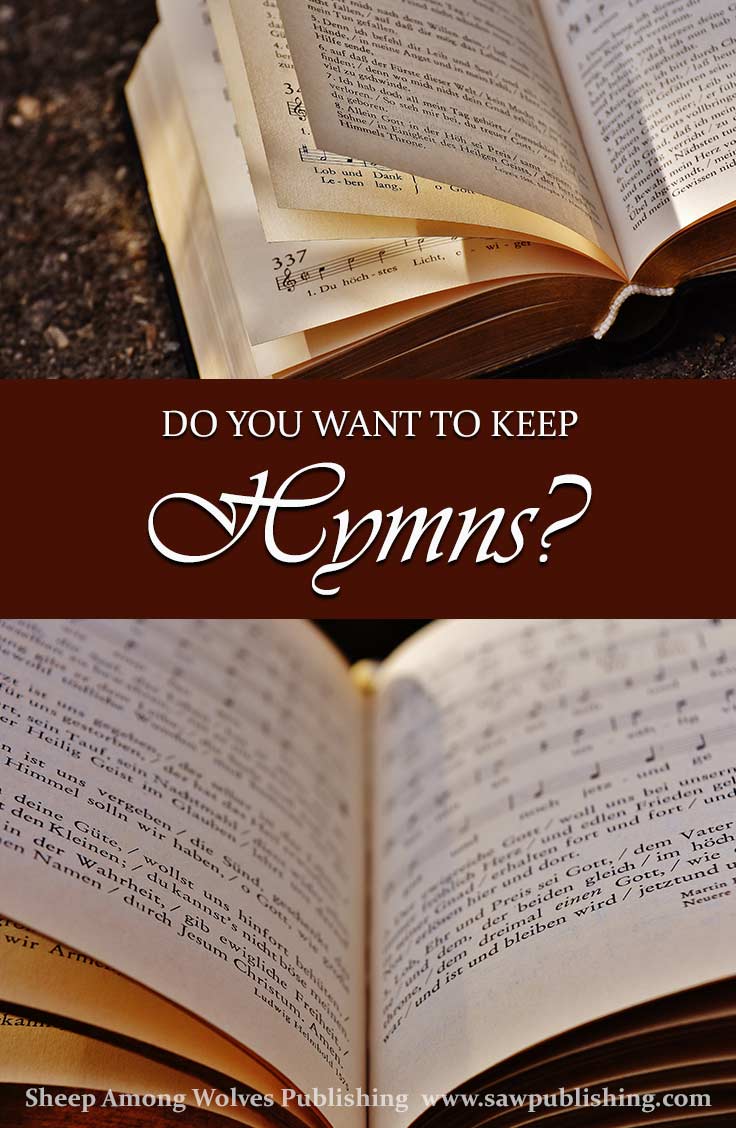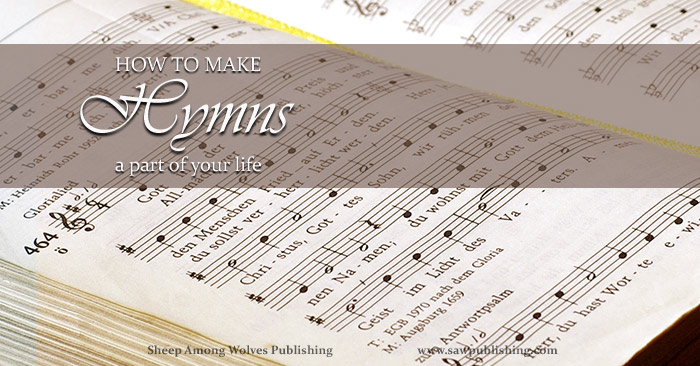Do You Want to Keep Hymns?
 Do you want to keep hymns?
Do you want to keep hymns?
How much do you want to keep hymns?
Exactly what is involved in keeping hymns in your life?
The 21st Century Western world has been blessed with a rich and vibrant heritage of godly music. It is a blessed heritage, and a heritage we want to keep. But keep is a funny word. It can mean a lot, or a little—it can imply care, effort, vigilance, and commitment, or it can express little more than passive acceptance.
Noah Webster actually gives us fifty definitions in his attempt to adequately describe this single word. Without going into all fifty, I want to take a look at a few of his descriptions, as we discuss three ways that we can keep hymns a part of our lives.
 Are you willing to RETAIN hymns?
Are you willing to RETAIN hymns?
The most primary sense of the word keep is captured in Webster’s very first definition:
“KEEP: To hold; to retain in one’s power or possession; not to lose or part with.”
Retaining hymns, in today’s day and age, often needs to be a choice. In a world flooded with music of every kind, do we value hymns enough to retain them in our lives? Scheduling a regular time in your routine for hymn-singing—perhaps during family devotions, or meals, or the opening exercises of your homeschool day—and then making sure you keep that time for hymns, can be an excellent place to start. Demonstrate to yourself and your children that hymns are something you value enough to retain.
Are you willing to PRESERVE hymns?
The current generation can be looked on as the custodians of our vast wealth of godly hymns, both past and present. A custodian expects to do some work to keep his charge in good condition. I like Webster’s fourth definition:
“KEEP: To preserve from falling or from danger; to protect; to guard or sustain.”
Actively preserving hymns will look different for different people. I think of the many hands involved in compiling a hymnal like Benchmark Press’s Hymns of the Church. I think of the thousands of hours invested by the staff of online hymn resources, such as the Cyber Hymnal. I think of the passionate promotion of church music by organizations such as Shenandoah Christian Music Camp. I think too, of all the individuals who directly or indirectly, by their finances, by their time, by their words of encouragement, support each one of these endeavours. All of these people, in their own way, are doing their part in keeping our heritage of hymns.
Are you willing to PRACTICE hymns?
At the end of the day, though, if you are going to keep hymns in your life there is one very simple, non-negotiable thing you are going to have to do. Webster captures this concept in five words:
“KEEP: To practice; to use habitually.”
If you want to keep hymns in your life, you’re going to have to sing them. Make a practice of singing them. Sing them habitually. Sing them while you’re cooking dinner, and folding laundry. Sing them while you’re rocking children to sleep at night, and while you’re waking children up in the morning. Sing them whether you think you sing well, or poorly.
I treasure the advice of a music teacher I had the privilege of studying under two years ago. “Sing,” he said, “I can correct anything but silence.”
Are you willing to keep hymns in your life?
Keeping hymns means something more than passively allowing hymns to stay where they are. It means retaining, and preserving, and practicing our rich heritage of church music. It means embracing hymns today, and passing them on to future generations.
It means a commitment which calls for effort, thought, and proactivity. But it also means a commitment which will bring you abundant blessings.
Will you choose to keep hymns in your life?
I would love to hear your thoughts about what it will look like for you!
For a few more ideas on incorporating hymns into your family’s daily routine, see our previous post:

Does music deserve the secondary position it receives in most educational systems? The way we view musical education can have a far more profound impact than we generally suppose.

Are you struggling to figure out homeschooling on your own? Timeless Tips from Educators of the Past offers a wealth of wisdom gleaned from days gone by.

A truly effective schedule takes a lot of work to develop, and a lot of discipline to follow. Are schedules really worth it? Are they really worth it for YOU?
- Word Clusters: How to Help Children Develop Vocabulary
- John in Search of a Place: A FREE Short Story from SAW Publishing

